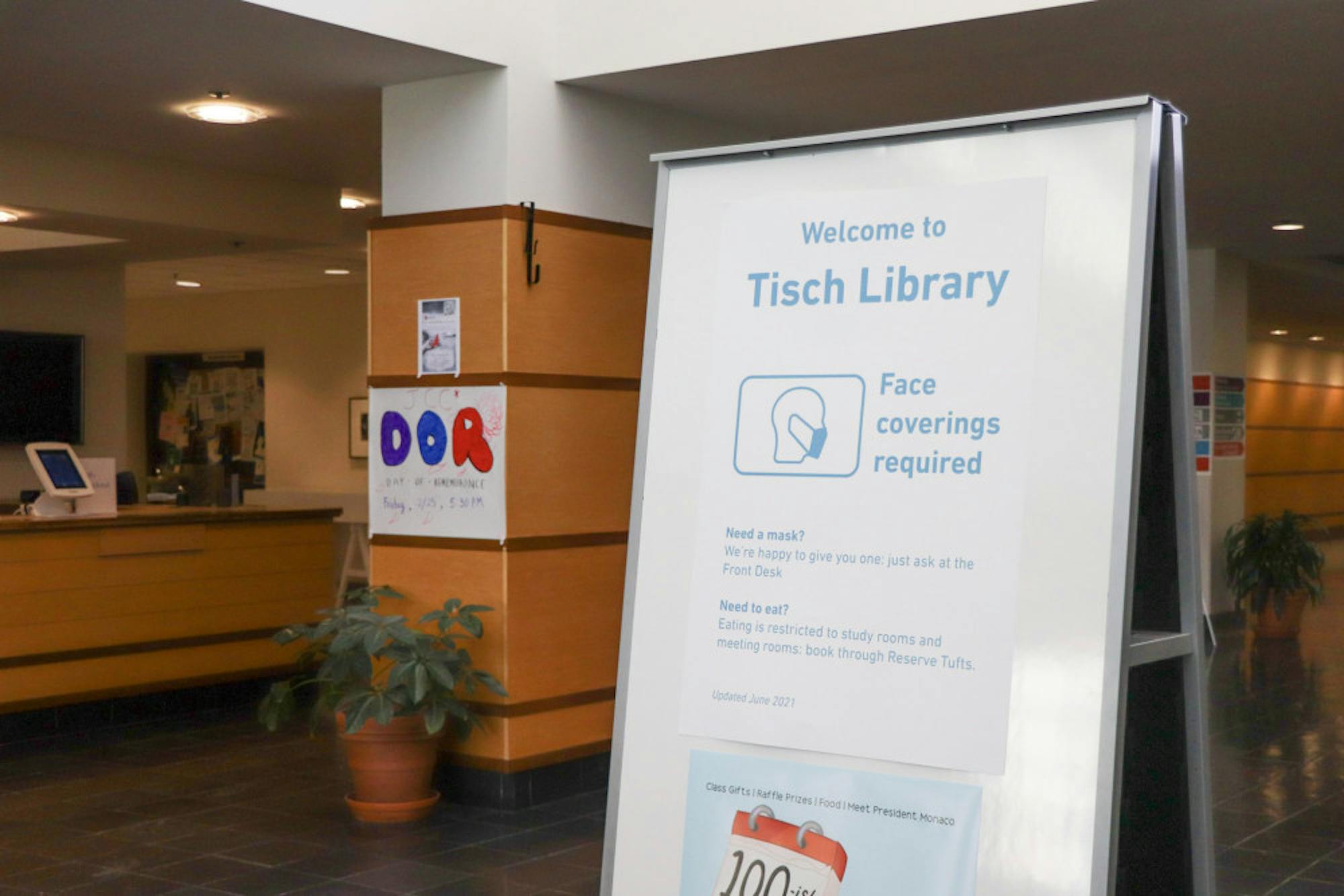Tufts will continue its mask mandate despite the state of Massachusetts dropping its mandate for K-12 schools and Medford and Somerville eschewing their mandates entirely.
In an email to the Daily on March 8, University Infection Control Health Director Dr. Michael Jordan explained the university’s current position on masking.
“Currently we are experiencing a high positivity rate on the Medford/Somerville/SMFA campus,” Jordan wrote. “As a result, we are not in position to relax masking requirements at this time on the Medford/Somerville/SMFA campus, but we are hopeful that positivity rates will continue to decline and that we will be able to relax our policies in the near term.”
Governor Charlie Baker announced on Feb. 9 that schools in the state will no longer require masks beginning Feb. 28.
“With Massachusetts a national leader in vaccinating kids, combined with our robust testing programs, it is time to lift the mask mandate in schools and give students and staff a sense of normalcy after dealing with enormous challenges over the past two years,” Baker said in the announcement.
According to vaccination data from the New York Times, 78% of all Massachusetts residents ages 12 to 17 and 47% of residents ages 5 to 11 are fully vaccinated, making the state’s population one of the most vaccinated in the U.S.
Colleges and universities were not included in Baker’s Feb. 28 announcement. However, in a letter sent Jan. 28 to presidents of public and private colleges and universities in the state, Massachusetts Secretary of Education James Peyser urged them to ease restrictions on an accelerated timeline.
“Colleges and universities should accelerate their efforts to transition back to ‘near normal’ conditions, which include focusing on individuals who manifest COVID symptoms and test positive for COVID, and especially those who are particularly at-risk for serious illness and hospitalization,” Peyser wrote. “Along with relaxation of strict protocols, must be active, supportive communication and teaching about how to engage within their community safely.”
On top of Baker’s appeal to colleges and universities, Medford and Somerville have each revoked their indoor masking requirements in recent weeks. Tufts, for its part, has remained consistent in its mask requirement for indoor public spaces. The university also updated its isolation protocols on Feb. 28 so that students must test out of isolation rather than being released on day five if they are asymptomatic.
In his letter to college and university presidents, Peyser also encouraged colleges to increase investment in mental health services on campus. According to the letter, these services are needed in order to address the anxiety and depression exacerbated by the COVID-19 pandemic.
“Colleges should continue to increase their investments in mental health services to address the widespread issues of anxiety and depression that have been exacerbated by the challenges of the past two years,” Peyser wrote.
Looking to the future of mask mandates at Tufts, Jordan discussed what parameters would be needed to lift these across all campuses.
“Cases on the Medford/Somerville campus need to decline substantially before any consideration to easing restrictions can be entertained,” Jordan wrote, “On the other Tufts campuses, such as Grafton and Boston Health Sciences, where the cases are very low, we can consider easing restrictions.”






